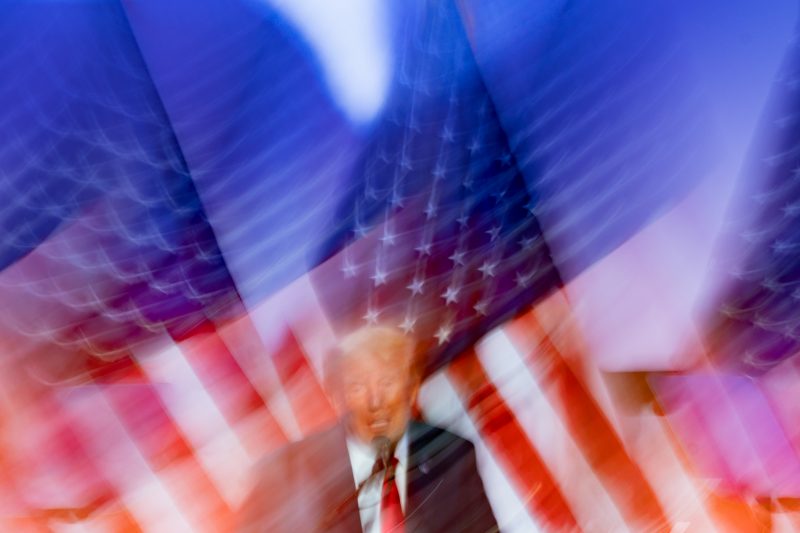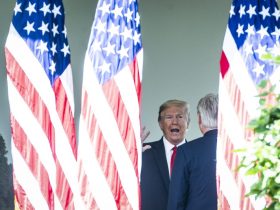The top financial partner of former president Donald Trump’s media company has offered to pay $18 million to the Securities and Exchange Commission to settle an investigation into its initial merger talks in hopes that it could accelerate its long-delayed merger, the company said in an SEC filing Monday.
Digital World Acquisition — the special-purpose acquisition company, or SPAC, that had pledged to merge with Trump Media & Technology Group so that it could be traded on public markets — said it had reached a preliminary agreement with the SEC stipulating that the company had “violated certain antifraud provisions” in filings relating to the “timing and discussions” of its proposed merger with Trump’s company, owner of the social network Truth Social.
The settlement, which is subject to approval by the SEC, could help unlock hundreds of millions of dollars that Trump’s company has been counting on for months. But the filing also hinted at tension between the companies that could undermine the deal entirely.
The merger deal, which was originally set to conclude last year, is still frozen due to the SEC investigation, and Digital World has pushed to extend the deadline for another year past its Sept. 8 target. In the filing, Digital World said that “pursuant to its electronic mail, [Trump Media] believes it is currently only bound under the Merger Agreement through Sept. 8, 2023.”
Digital World “expects to work with [Trump Media] in good faith to address this disagreement in a manner that is in the best interest of its shareholders,” the filing said. “The Company remains very interested in the transaction with [Trump Media] and is hopeful [the companies] can resolve this interpretative divergence.”
As of now, Digital World is set to liquidate on that date, returning $300 million to investors, if the merger deal has not gone through.
Digital World said it believed the settlement would “remove the cloud of uncertainty” lingering over the company and allow it “to move forward in achieving its objective” to help “create an alternative media platform.” Trump Media, it added, also retains the right to terminate the merger deal outright.
The SEC did not respond to a request for comment Monday. Digital World and Trump Media representatives also did not respond.
Digital World had told the SEC in its initial public offering filing in September 2021 that it had “not selected” nor had “any substantive discussions, directly or indirectly, with any business combination target,” in line with SEC rules that SPACs must not finalize any merger before their launch.
But in an indictment unsealed last week relating to charges of securities fraud, federal prosecutors showed text messages suggesting that a former Digital World director and other investors had known months in advance of the coming merger and sought to trade on that information for a profit.
A former Trump Media executive, Will Wilkerson, also filed a whistleblower complaint last year with the SEC alleging that the merger discussions had violated securities laws. Trump Media fired him in October after he spoke with The Washington Post.
As part of the settlement, Digital World offered to amend its merger registration filing, known as a Form S-4, to ensure it was “materially complete and accurate” and to pay the $18 million penalty after the merger is approved.
Michael Ohlrogge, a New York University law professor who studies SPACs, said the possible settlement seemed like a positive step for Digital World’s prospects but that “even with this, getting regulatory approval for the merger is far from a done deal.”
He noted that Digital World must still resolve other “potentially difficult disclosure issues” to the SEC’s satisfaction, including the large discrepancy between the valuation the merger agreement had given to Trump Media in October 2021 — up to $1.7 billion — and the value Trump had given to Trump Media in his campaign finance filings this April (between $5 million and $25 million).
The company, Ohlrogge added, still faces questions about other loans and legal risks that could further delay the deal “or create a lot of liability for the post-merger company due to investors seeking to claw back their money if they have credible claims of being deceived.”








